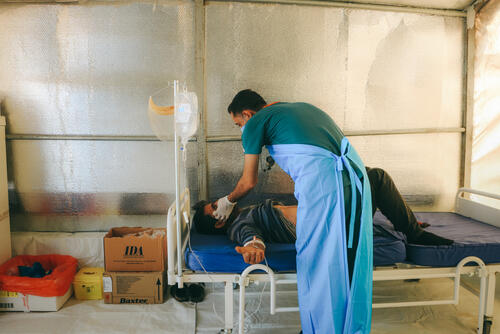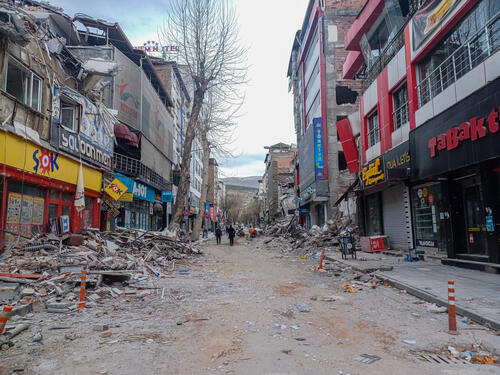It is 9 am in the war-ravaged but bustling city of Raqqa in northeast Syria. Fatina, who is originally from Aleppo, is lying on her bed in a Médecins Sans Frontières (MSF)-supported cholera treatment unit (CTU).
She is still feeling weak, so a nurse is helping her drink an oral rehydration solution from a cup as she recovers from cholera, a disease that hasn’t been seen in Syria for over a decade.
“I came to Raqqa to visit my son several days ago and then I found myself here,” says Fatina. Having survived the conflict that has battered the region since 2011, she found a new threat looming.
“I was first hospitalised at Raqqa national hospital by my family. My condition got worse; I was suffering from a severe headache, diarrhoea, and uncontrollable vomiting when I arrived at the CTU. I am not sure why I got so sick, but it felt like I was dying,” she says.
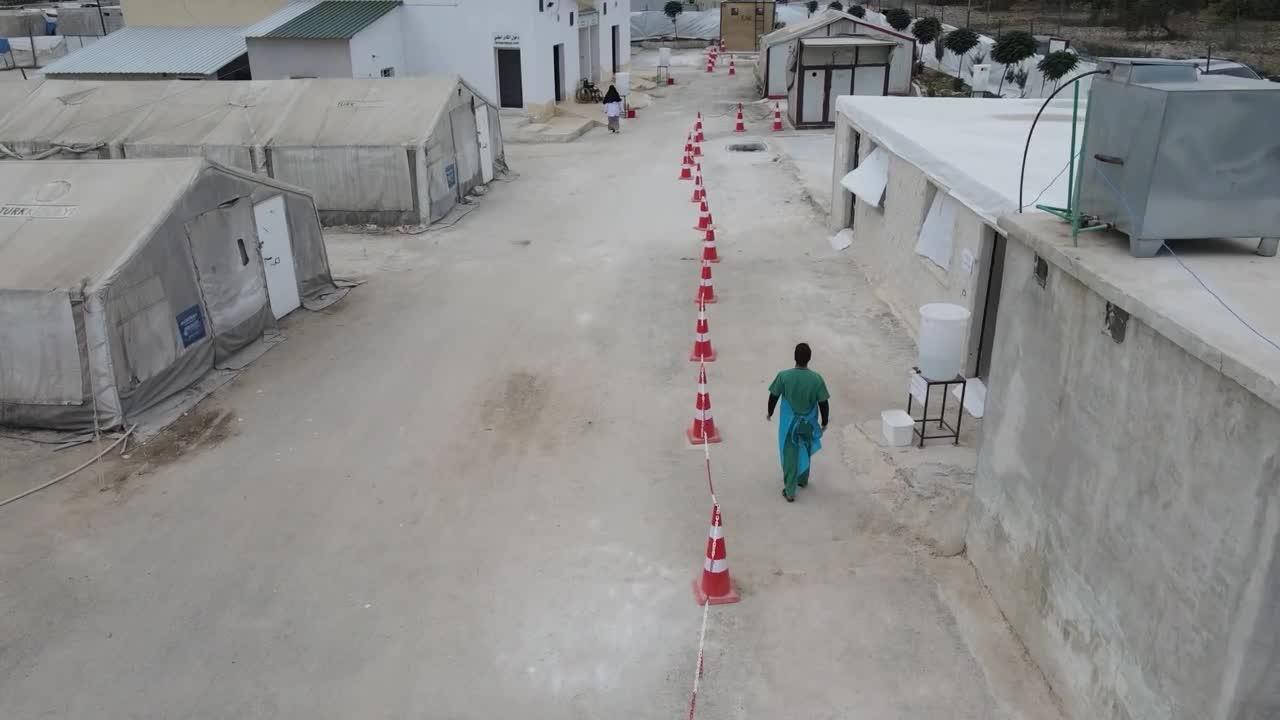
Cholera in Syria
People resort to unsafe water
First linked to the contaminated water from the Euphrates river and the severe water shortage in the north of Syria, cholera first emerged in Deir ez-Zur, then along the Euphrates to Raqqa and to Aleppo in the northwest before quickly spreading across the country.
As northern Syria governorates are not equally affected by the cholera outbreak, the number of cases admitted to MSF-supported cholera treatment units is varying from one governorate to another but is still within our capacity to respond.
In northeast Syria, we are responding to the outbreak in partnership with local health authorities, including providing support to a CTU in Raqqa. Since the cholera outbreak was first declared in September, our teams have treated more than 3,000 suspected cholera cases in the northeast. But the number of patients admitted is now declining, and the majority of those seen at the CTU have only mild symptoms. Consequently, the capacity has been decreased from 60 to 20 beds.
However, with water levels in the Euphrates diminishing due to a prolonged drought, and many communities resorting to compromised sources such as the river or open canals to fetch their water, the danger of a full-blown cholera outbreak remains, particularly with the local health infrastructure having been decimated by 11 years of conflict.
Delay in treatment causes severe symptoms
In Idlib governorate, northwest Syria, Alaa Hassan, 30, arrives at the MSF-supported 24-bed cholera treatment unit (CTU) exhausted and ill.
“At first, I thought it was just a normal intestine infection, but within hours, my vomiting and diarrhoea worsened,” says Alaa. “I almost passed out, and my blood pressure suddenly dropped.”
Her mother-in-law had similar symptoms, but they didn’t know the source of the infection. “I heard about the spread of cholera in Syria, but I did not expect to catch it and suffer from such serious symptoms,” she says. Two days after she was admitted to the CTU, and not long after receiving treatment, all her symptoms had resolved.
In northern Idlib, we are also supporting another CTU, and two others in Afrin and Al-Bab, northern Aleppo, in partnership with Al-Ameen Organization. In addition, we are also running and supporting four oral rehydration points (ORP) as the first step in treatment, for patients who are showing symptoms, but aren’t at the stage that they’d require hospitalisation.
Around 300 patients have been treated in the ORPs and 220 patients in the CTUs in northern Idlib, approximately 20 per cent of whom were considered to have severe symptoms. Most of these severe cases were due to a delay in seeking treatment.
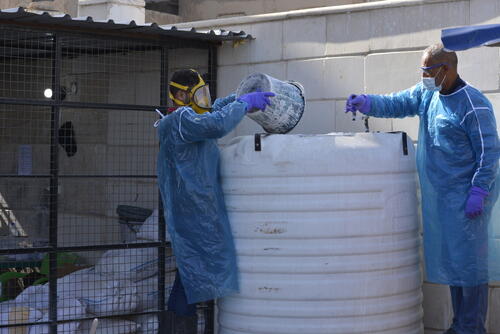
Dalal and her sick son Saleh, who are from the countryside of Raqqa, a few hours’ drive away, were referred to the CTU in Raqqa just one day ago. Dalal desperately made her way to the centre with her severely ill baby, travelling on a minibus.
With her baby losing fluids, and getting fainter by the minute, the journey felt like it would never end. A mother of eight, she had to leave her other children with their father.
“I have eight kids, my five-month-old son, Saleh, is the youngest,” says Dalal, who sits on a bed with her son at the CTU. “He had severe diarrhoea a week ago. I thought it might be because of the sheep’s milk but his health deteriorated. I brought him to this centre and thanks to God, he is feeling much better now.”
Working with the community
Ahmad Ali is from the Raqqa CTU health promotion team. He is one of a group of community health workers in northeast and northwest Syria who visit patients in their rooms and meet with families to talk about their concerns and answer their questions.
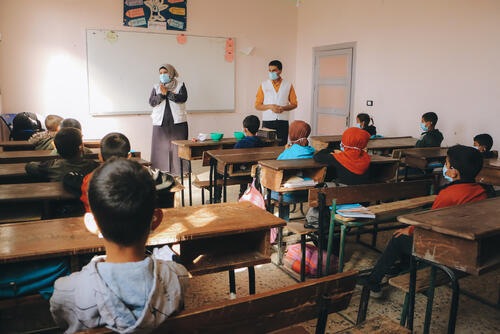
The team also explain how to recognise the early symptoms of cholera, and what to do if someone suspects that they or a family member has caught the disease.
“Some families in the rural areas in Raqqa have told me that they were using water directly from open canals or the river for their household needs and for drinking,” says Ali.
“This water is contaminated and unsafe, but when the nearby water plant isn’t functioning, people will naturally look for other resources, which leads to contracting the disease,” he says.
“We used to see 25 patients on average every day, but in northeast Syria cases have now markedly decreased. People now know better how to protect themselves and their families from infection.”
While northern Syria faces another harsh winter, amid an already unstable security situation, local communities are doing everything they can to help curtail the outbreak, so it doesn’t add another layer of complexity to an already precarious humanitarian situation.



